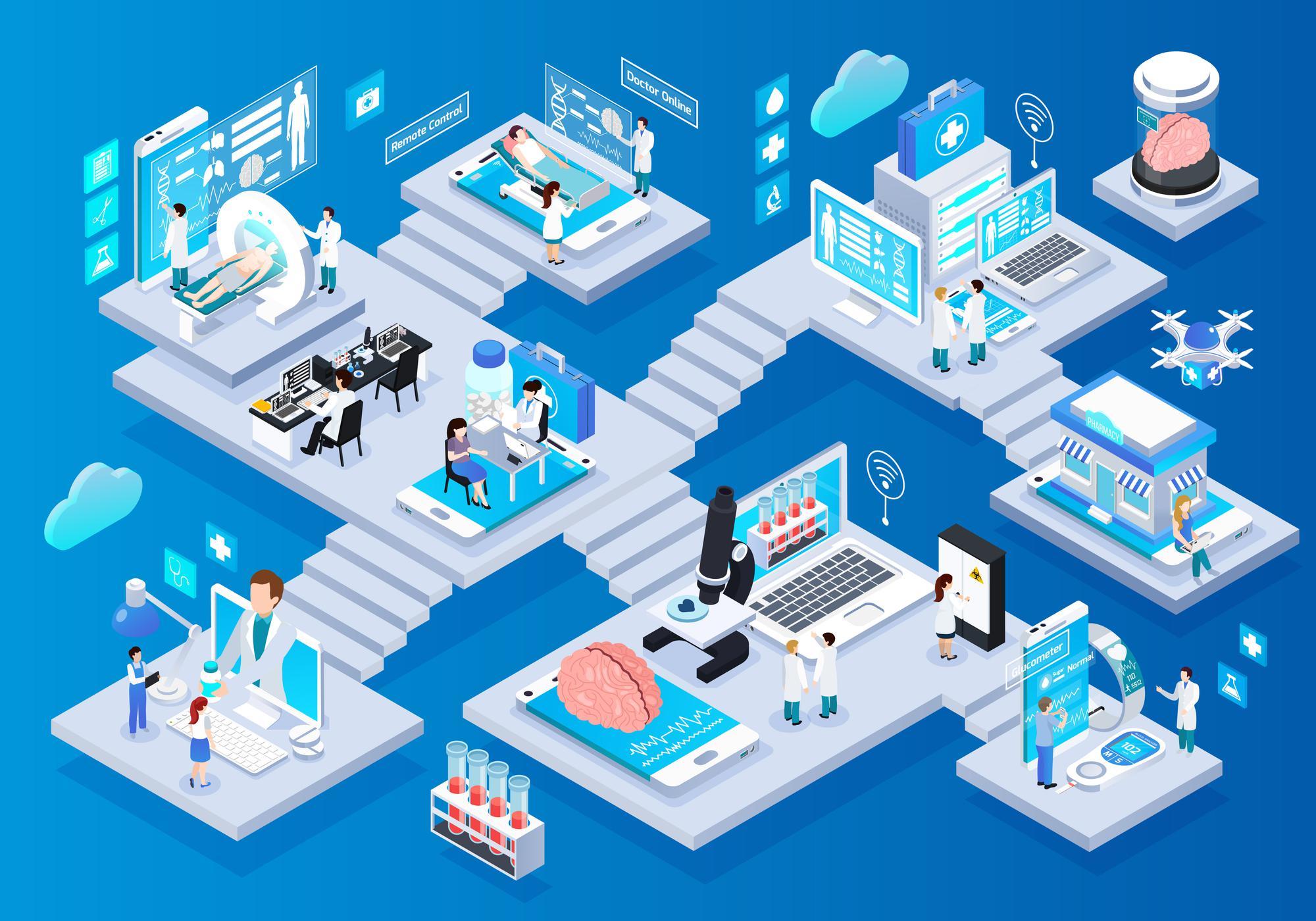Hospital App Development Trends: What You Need to Know

Introduction
In recent years, the healthcare industry has seen a significant transformation, largely driven by technology. One of the most noticeable changes has been the proliferation of hospital apps, which are designed to streamline processes, enhance patient care, and improve overall hospital management. These apps have become an integral part of modern healthcare systems, offering a wide range of functionalities. To stay ahead in this dynamic field, it’s essential to keep an eye on the latest hospital app development trends. In this article, we’ll explore some of the most important trends you need to know.
Telemedicine Integration
The COVID-19 pandemic accelerated the adoption of telemedicine, and it’s here to stay. Hospital apps are increasingly integrating telemedicine features to provide remote consultations, monitor patients’ vital signs, and offer post-discharge care. This trend not only improves accessibility for patients but also reduces the burden on hospital resources.
IoT and Wearable Device Integration
The Internet of Things (IoT) and wearable devices are revolutionizing patient monitoring. Hospital apps can now connect to wearable devices to gather real-time data on a patient’s health, such as heart rate, blood pressure, and glucose levels. This data can be used to track chronic conditions, alert healthcare providers to any anomalies, and enhance personalized treatment plans.
Artificial Intelligence (AI) and Machine Learning (ML)
AI and ML are playing a crucial role in hospital app development. These technologies are being used to analyze vast amounts of healthcare data to assist in diagnosis, predict disease outbreaks, and even optimize hospital resource allocation. AI-powered chatbots are also becoming common for answering patient queries and booking appointments.
Enhanced Patient Engagement
Patient engagement is a priority in modern healthcare. Hospital apps are being designed with user-friendly interfaces, interactive features, and personalized content to engage patients in their healthcare journey. This includes appointment scheduling, medication reminders, and access to medical records.
Blockchain for Data Security
Security and privacy are paramount in healthcare. Blockchain technology is being explored to ensure the integrity and security of patient data. By providing a tamper-proof and decentralized ledger, blockchain can safeguard sensitive medical records and transactions.
Augmented Reality (AR) and Virtual Reality (VR)
AR and VR are being used for medical training, pain management, and even surgical planning. Hospital apps are incorporating AR and VR features to enhance medical education and patient experiences. For instance, doctors can use AR to visualize complex anatomical structures during surgery.
Predictive Analytics for Resource Management
Predictive analytics is helping hospitals optimize resource allocation. By analyzing historical data and current trends, hospital apps can forecast patient admissions, enabling better staffing and resource allocation. This ensures that hospitals can provide quality care without overburdening their staff or resources.
Interoperability
Interoperability remains a critical issue in healthcare. Hospital apps are working towards better integration with Electronic Health Records (EHR) systems and other hospital software. This ensures that patient data flows seamlessly and securely between different systems, improving care coordination.
Accessibility and Inclusivity
Hospital apps are increasingly focusing on accessibility for all patients, including those with disabilities. This includes features like voice recognition for hands-free interaction and text-to-speech for visually impaired users. Ensuring inclusivity is not only ethical but also a legal requirement in many regions.
Data Analytics for Quality Improvement
Data analytics tools are being incorporated into hospital apps to assess and improve the quality of care. Hospitals can track key performance indicators, patient outcomes, and patient satisfaction to drive continuous improvement efforts.
In conclusion, hospital app development is a rapidly evolving field driven by technological advancements and the changing landscape of healthcare. Staying informed about these trends and incorporating them into your hospital’s app development strategy can lead to better patient care, improved efficiency, and a competitive edge in the healthcare industry. As technology continues to advance, hospital apps will play an increasingly vital role in delivering high-quality healthcare services.
- Questions and Answers
- Opinion
- Motivational and Inspiring Story
- Technology
- Live and Let live
- Focus
- Geopolitics
- Military-Arms/Equipment
- Sicurezza
- Economy
- Beasts of Nations
- Machine Tools-The “Mother Industry”
- Art
- Causes
- Crafts
- Dance
- Drinks
- Film/Movie
- Fitness
- Food
- Giochi
- Gardening
- Health
- Home
- Literature
- Music
- Networking
- Altre informazioni
- Party
- Religion
- Shopping
- Sports
- Theater
- Health and Wellness
- News
- Culture

